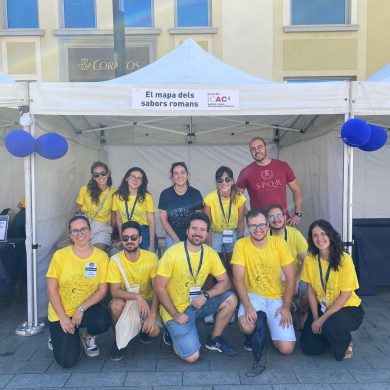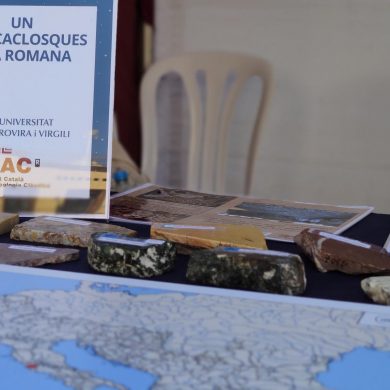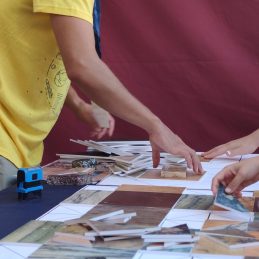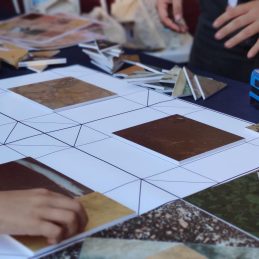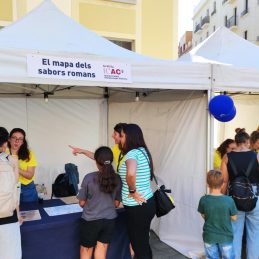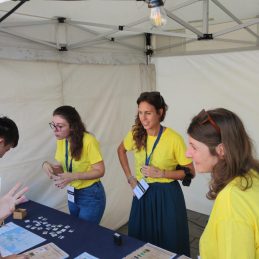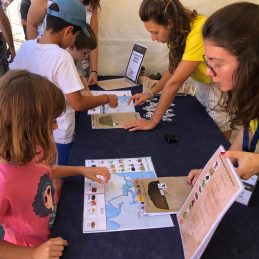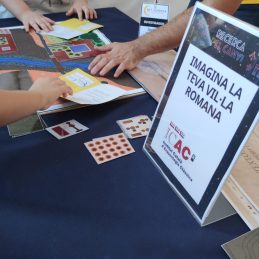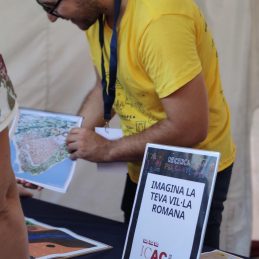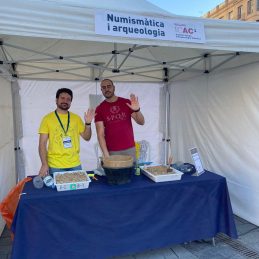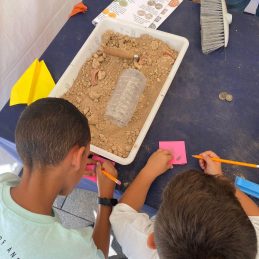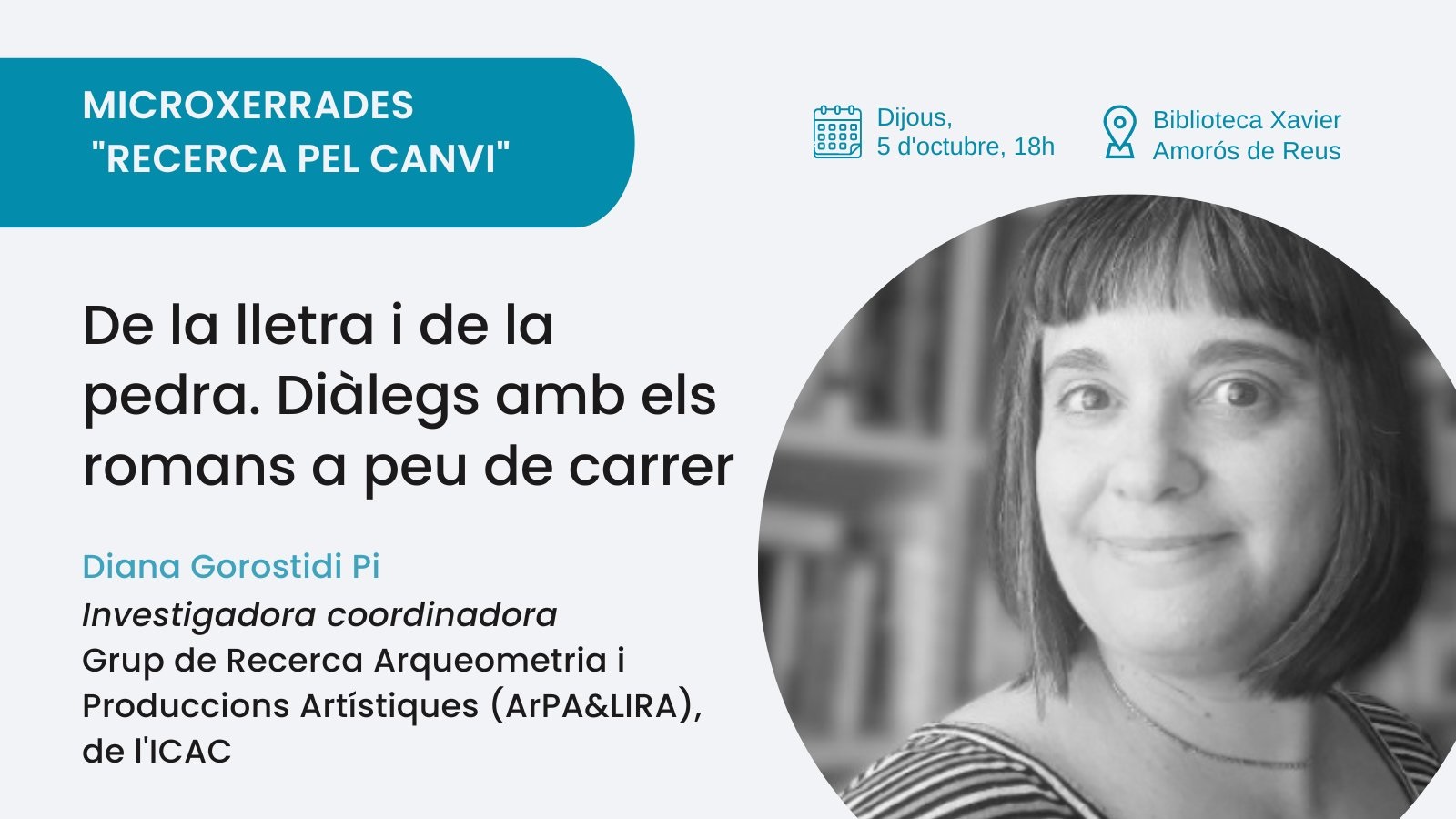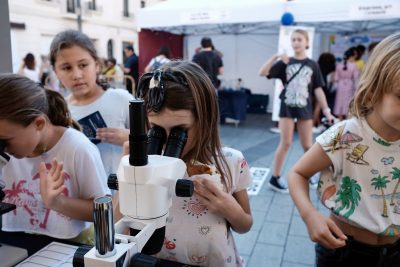
One hundred activities were led by around 300 researchers from the URV (Rovira i Virgili University) and the four CERCA research centers in the Tarragon area (ICAC, ICIQ, IISPV, IPHES).
The sixth edition of the European Researchers’ Night has exceeded all expectations. More activities, more locations, and greater participation, both from the public and researchers who, once again, have enthusiastically embraced this outreach activity.
On the afternoon of Friday, September 29, and the morning of Saturday, September 30, over 4,000 people took part in the scientific workshop fair held at Corsini Square in Tarragona. For the first time, the main event of the Night extended over two days, and for the first time, the workshop fair also reached Tortosa.
More than 4,000 people participated in the scientific workshop fair held at Corsini Square in Tarragona
In total, there were about 60 workshops from various scientific disciplines for families. These were hands-on experiments adapted to understandable language. Upon entering the square, children received a scientific passport that they completed as they participated in the workshops. This year, around a thousand passports were completed.
This initiative, coordinated and organized in the Tarragona region by the Science Communication and Outreach Unit of Rovira i Virgili University (URV), involved nearly 300 researchers from URV and the CERCA centers in the area: the Catalan Institute of Classical Archaeology (ICAC-CERCA), the Catalan Institute of Chemical Research (ICIQ-CERCA), the Pere Virgili Health Research Institute (IISPV-CERCA), and the Institute of Human Paleoecology and Social Evolution (IPHES-CERCA). The proposal received funding from the European Union.
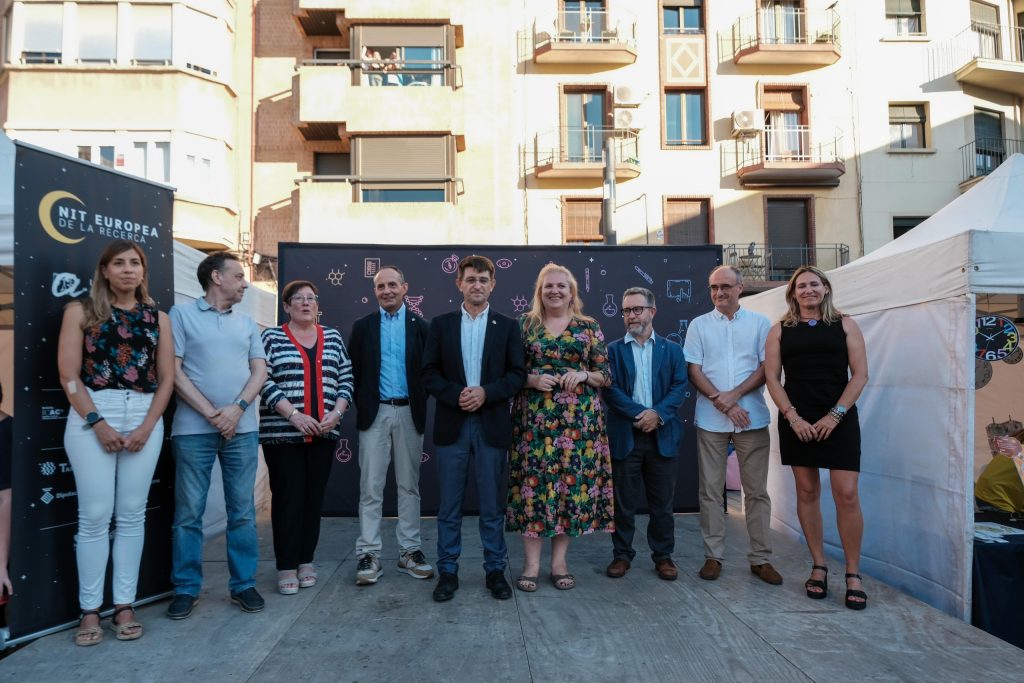
In this 2023 edition, the Catalan Institute of Classical Archaeology (ICAC-CERCA) took part in the scientific workshop fair with four experimental workshops focused on the Roman world from the perspective of trade, food, craftsmanship, and numismatics.
- Producing, trading, and building: Imagine your Roman villae. With Toni Corrales & Maria Rueda, from the MIRMED research group.
-
The map of Roman flavors. With Theoni Baniou, Federica Riso, Darío Herranz, Alexandra Livarda, and Patricia Vandorpe, from the GIAP research group.
- A Roman puzzle: Let’s assemble an opus sectile! With Laura Galán, Jordi Oliver, Pablo Varona & Teresa Buey, from the ArPA-LIRA research group.
-
Numismatics and archaeology: two symbiotic fields. With Òscar Caldés & Andreu Muñoz, from the MIRMED research group.
To reach a wide range of audiences, both pre-event and post-event activities have been organized. Throughout the week, secondary schools in the region have hosted visits from researchers from URV and the CERCA research centers in Tarragona, who have conducted nearly 30 informative talks and workshops.
The Tarragona City Council, through the Europe Direct Tarragona Office, is the main sponsor of the activity at Corsini Square, in collaboration with the Tarragona Provincial Council and the Port of Tarragona. It has also received support from the Central Market of Tarragona and the company Borges.
Informative Talks in Reus
The final event of the European Researchers’ Night in the Tarragona area will take place this Thursday at the Xavier Amorós Library in Reus. It consists of a series of informative talks titled “Research for Change”, featuring micro-talks on research-related topics presented by researchers from the University and CERCA research institutes in Tarragona. The event is coordinated by the Pere Virgili Health Research Institute in collaboration with Rovira i Virgili University.
Diana Gorostidi (URV-ICAC) is giving the micro-talk “From Letters to Stones: Dialogues with the Romans on the Streets”. The event will take place at the Xavier Amorós Library in Reus on Thursday, October 5th, at 6 p.m.
300 Cities and 30 Countries
The European Researchers’ Night is a public scientific outreach event that takes place every year simultaneously in 300 cities across 30 countries on the continent. Since 2018, URV has been organizing this initiative in the Tarragona region, which has grown and become more established over these six years. The goal of the European Research Night is to bring research and its protagonists closer to audiences of all ages and to promote research and innovation in clear and understandable language.
This event is made possible through the co-financing of the Horizon Europe research and innovation program of the European Union and the collaboration of the consortium coordinated by the University of Girona, with the participation of other universities.
